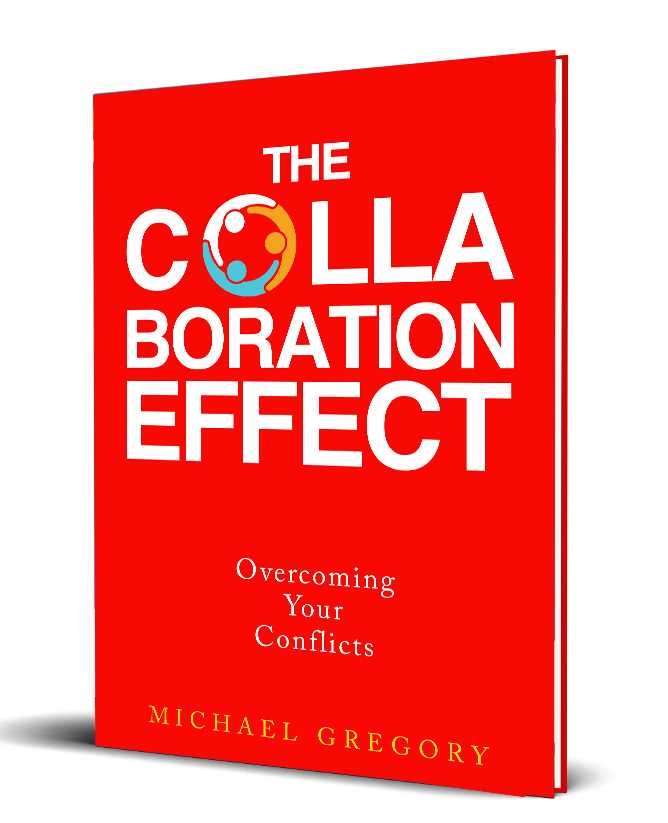
There are many articles and books on negotiation and over 50 blogs at my web site related to just negotiations., but are you aware of what your brain needs as a foundation to make you a better negotiator, collaborator, and mediator? It turns out the same things you need for a healthy brain to enhance your skills are the same things you need for your body too. These techniques can help you remain sharp as you age too. Read on to learn more.
The basics
To keep your mind sharp and your brain healthy is not as complicated as you think. In his book, Keep Sharp: Building a Better Brain at Any Age, neurosurgeon Sanjay Gupta provides great advice. This advice translates directly to how sharp you can be in a negotiation, collaboration, or mediation. What does this involve you may ask?
Movement, sleep, purpose, eating, and connecting.
For Those of you that follow this blog, you know about The Collaboration Effect® and that The Collaboration Effect is all about connecting relationships, listening actively, and educating judiciously that lead to building bridges and negotiating closure. Starting at the end of the five recommendations, let us take a look at connecting from the perspective of Dr. Gupta.
Connecting
When Dr. Gupta addresses connecting, he means having close relationships with others that you can count on. Who do you trust? Why do you trust them? These are important questions for you to consider for a happier, healthier lifestyle. By comparison loneliness, is detracting, leads to depression and anxiety. We need to be connected to others.
Combining the need to connect with learning and moving is a win-win for your mind and your body.
Volunteering often offers you a combination of all three, connecting, moving, and learning. Finding somewhere to volunteer that you enjoy offers great connections. If you are not volunteering, consider trying something and move outside of your comfort zone. Learning something new, connecting, have some movement with whatever the activity may be, and indeed having fun really makes a difference. You may surprise yourself how much you enjoy the activity. If it does not work out, try something else.
With the murder of George Floyd many are considering how diverse their circle is regarding diversity. Many are educating themselves and taking steps outside of their comfort zone to connect with others they had not actively sought out previously. What about you? Who or what groups might you explore to expand your own horizons? Consider this both virtually and in person.
To enjoy life, think about what you can do to have fun, learn something new, and get out and go. Connecting in this way will help produce a better attitude in negotiations too. With a better attitude you can enter negotiations, collaborations, or mediations feeling more relaxed, in control, positive, and focused. Now let us explore the other areas to be in top form for negotiating, collaborating, and mediating.
Movement
As the saying goes “never, never stop moving” or “you have to keep moving to keep moving”. To prevent disease and deterioration it is important to keep moving. Notice the term exercise was not used. Many identify exercise as pushing yourself to a limit. There is a vision of sweating, hardly being able to keep your breath, and feeling exhausted. That is not what is needed. Some people really like pushing themselves. Great. However,
our bodies and minds simply need movement on a regular basis.
Consider walking, tai chi, yoga, something fun like paddle ball, tennis, swimming, hiking, or biking. Note there is no reason to push it from your brain’s perspective. The key is movement. This will improve your stamina, strength, and stress management. From a brain perspective this stimulates the function and growth of neural cells. This promotes a healthy brain. Aerobic exercise offers cognitive benefits versus stationary exercise like weightlifting builds muscle. What about sleep?
Sleep
Sleep clears the brain. Mindfulness such as meditation, prayer, reflection, and yoga at least 10 minutes is a healthy way to help your brain too. Studies have shown applying mindfulness at least 10 minutes a day for 21 days can lower blood pressure and make you calmer when exposed to stressful situations. This can come in handy in a negotiation.
You want a clear head in any potential confrontation. Resting in general helps. Daytime short naps, taking walks in nature, and meditation helps.
How much sleep should you have on a regular basis? The Mayo Clinic through WebMD provides insight for you on how much sleep you need.
Most adults need 7 to 9 hours each day,
but pregnant women in their first three months need more. If you are feeling drowsy during the day that is a sign that you have not had enough sleep. You also need to have a purpose, vision, or mission to give you passion for living.
Purpose
You need to continually challenge your brain. Think of all the ways you can to this. Consider education, the work you do, your social relationships, volunteering, and other activities. Learning something new is critical. What do you find stimulating and fun? Try something new. See how that goes.
Problem solving and reasoning challenges are extremely healthy for your brain and will help you with negotiating.
This will help you think outside of the box, be able to consider a wider range of alternatives and enhance your skills as a solution provider. Involve yourself with different generations that have challenges different from yours. All of these items give you challenges and purpose. What about eating?
Eating
Very simply what is good for the brain is good for the body. In her book, The Brain Friendly Workplace, Dr. Erika Garms suggests for negotiations have antioxidants such as blueberries, and other fresh fruit such as strawberries, grapes, and cut up cut up fruit, celery sticks, carrot sticks, peanut butter, and dark chocolate. Be sure and hydrate with water and other beverages that are appropriate culturally such as water, coffee, and tea.
Dr. Grupa points out there are no super foods like kale or fish oil. Rather,
a Mediterranean diet with vegetables, fruit, berries, beans, whole grains, fish, poultry, and olive oil are great for your brain.
By having a diet with plenty of these elements you will be healthier and think more clearly.
In summary
Do follow the blogs on collaboration, conflict resolution and negotiation from the categories on the left side. However, you need to make sure you are well prepared with the basics of eating right, having purpose in what you are doing, obtaining appropriate rest, having regular movement, and connecting with others. This will improve your attitude and your skill set in application.
About the author
Mike Gregory is a professional speaker, an author, and a mediator. You may contact Mike directly at mg@mikegreg.com and at (651) 633-5311. Mike has written 12 books (and co-authored two others) including his latest book, The Collaboration Effect: Overcoming Your Conflicts, and The Servant Manager, Business Valuations and the IRS, and Peaceful Resolutions that you may find helpful. [Michael Gregory, ASA, CVA, MBA, Qualified Mediator with the Minnesota Supreme Court]

